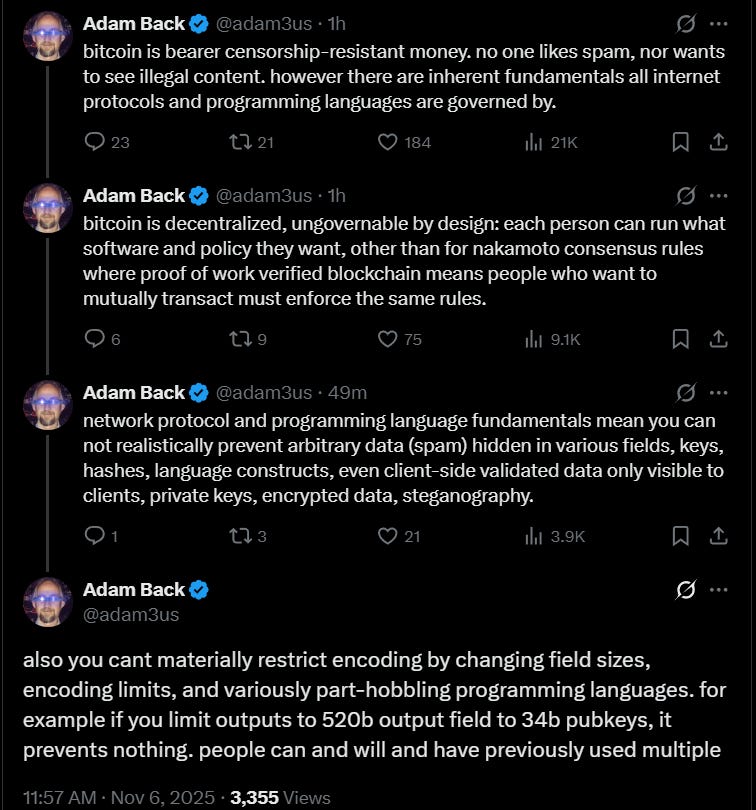Ungovernable by Design
How Bitcoin Exposes the Futility of Regulating Information
Adam Back’s thread is a concise defense of Bitcoin’s fundamental ungovernability. It articulates a principle that extends far beyond cryptocurrency: when a system is both open and computationally expressive, attempts to regulate its substrate are inherently futile.
Back’s argument rests on three technical truths:
Arbitrary data embedding is inevitable. Any Turing-complete or near-Turing-complete environment can be used to encode arbitrary data. In Bitcoin, data can be hidden in keys, hashes, scripts, or even in patterns of transaction timing. The protocol’s openness is not a design flaw—it is an unavoidable property of general computation.
Consensus defines validity, not intent. Bitcoin’s only enforceable law is the Nakamoto consensus: blocks are valid if they satisfy proof-of-work and follow the agreed chain rules. Beyond that, there is no mechanism—nor could there be—to distinguish between “legitimate” and “illegitimate” data. Any system capable of distinguishing intent from structure would itself require omniscient interpretation.
Superficial limits don’t work. Restricting field sizes or opcodes is as meaningless as regulating the maximum dosage per pill to prevent overdose. Limiting the container does not limit the capability. Information, like dosage, integrates over the system as a whole. People can always use multiple transactions, just as they can take multiple pills.
The broader point is that protocols obey physical and mathematical invariants, not policy preferences. Censorship resistance is not a moral stance—it is a structural consequence of how computation, consensus, and information interact. You can regulate human behavior, but you cannot regulate math.
This insight generalizes. The same logic applies to biology, markets, and language. Each is an open-ended generative system where attempts to confine behavior through form alone inevitably fail. Control achieved by constraining syntax always backfires, because semantics route around it. The system adapts.
Back’s statement thus becomes a philosophical axiom: you cannot dose-limit freedom at the substrate level. Whether it’s Bitcoin, DNA, or speech, any medium capable of encoding general expressions will resist arbitrary prohibition by re-encoding intent. The more universal the substrate, the more futile the control.
Bitcoin’s design merely exposes this fact in pure form. Its consensus is physics made social: validity without interpretation, governance without governors. To rail against that is to rail against the nature of information itself.



